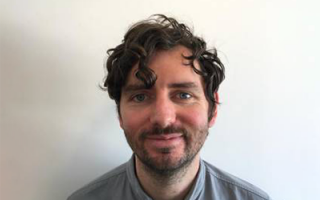What encouraged you to pursue a degree at UCL Laws?
When I first moved to London, I used to cycle all over the city to try to piece it together. On one expedition, before I had seriously considered applying to university, I found myself on the Bloomsbury campus on a really warm and beautiful day. There was an incredible atmosphere about the place that felt magnetic. When I decided to retrain and study law, I applied to UCL partly because of that memory, but also because I felt like the Faculty wanted to accommodate people from a wide array of backgrounds and with a range of different life experiences. I had an instinct that the university was a good fit—one which, happily, has proven to be well founded.
What is your fondest memory of your time here?
The most inspirational experience about my time at UCL was volunteering as a receptionist at the Integrated Legal Advice Clinic (iLAC), part of the UCL Centre for Access to Justice. When I started the degree, I was working for an association of independent record labels and my intention was to find more work in the music industry after I graduated. The voluntary position made me rethink what I could do with a law degree. It also made me think more critically about the law and its social function. It’s probably not overstating things too much to say that it changed my life.
Receiving my final year results was an amazing feeling. I have never worked harder than I did for my law degree, and that's largely because studying felt like a luxury—something unbounded and entirely for myself. I started a degree immediately after I left high school and I didn't realise what I had access to at the time. So, my best memory of UCL Laws is all of it; having the freedom to spend hours and hours challenging myself reading and thinking about topics that I find interesting and then seeing myself get better at it. My results were just the culmination of that.
What have you been up to since graduating?
Since graduating, there's been a lot to keep up with. My son was born about two weeks before I graduated, and I moved to the North East with my family for about 8 months while I completed the Legal Practice Course at Northumbria University - a different experience from doing the LLB at UCL but a very positive and welcome one nonetheless. I volunteered at Citizens Advice in Darlington while I studied and then moved back to London to take up a job as a Social Welfare Adviser at the iLAC in the spring of 2020. I'm currently going straight into my traineeship – my career aspirations in the short term are to finish my training and qualify as a solicitor. I would like to get very good at what I do and for my work to have the widest possible impact.
How did you get involved in volunteering and pro bono activities?
There were lots of reasons to want to work for the UCL Centre for Access to Justice. We’re embedded in a world class law faculty and I get to work with brilliant students on a daily basis. I knew my colleagues from my own time as a student at the clinic and I am really privileged to work alongside such a knowledgeable and supportive group of people. It is an incredibly collegiate environment to work in. On top of that, we are able to offer clients long-term casework. This means that we can address the clusters of problems that our clients tend to face, rather than dealing with discrete issues that might not get to the heart of the matter. We’re encouraged to look for systemic issues that we can challenge and I get to work substantively with the law.
What advice would you give to prospective or current students at UCL?
My advice to current or prospective students at UCL Laws would be: if you can volunteer, volunteer. There are lots of small- and medium-sized charities in London that offer advice and that could use your help. You will get an insight into areas of law that you may not encounter on your degree and you will learn much more about the city and the people who live here - it may well lead you to reappraise what it is you want to do with your career.
 Close
Close


